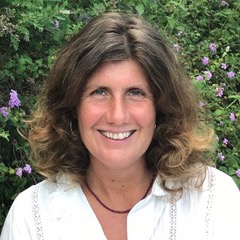
Spending time in the clinic seasons us. It exposes us to success, failure and unending questions about healing, wellbeing and connection that over time can help us to sit with our patients in the midst of deep difficulty.
In this conversation with Rebecca Avern we discuss the fortitude that must be developed to sit with the difficult to answer questions that arise in clinic. And how clinical work, while it deepens and enriches the lives of our patients and ourselves, does extract kind of price.
It would not be untrue to say doing our work is a privledge, and it also brings a certain kind of shadow.
Listen into this conversation on presence, inquiry, and listening with your qi. As well as a look at the shadow side of practice.

Rebecca Avern
When I ‘found’ acupuncture, nearly 25 years ago, I felt as if I had come home. Over the following years, I was privileged to study and work with several inspiring teachers. I loved treating patients in clinic, the fact that every day involved deeper learning and at least a few surprises. I felt honoured that people would share their inner worlds with me and was touched by seeing them evolve. I thought I was the luckiest person alive to have found such work.
Then I gradually began to shift my focus to working with babies, children and teenagers. Eventually, I decided to focus my clinical work solely on young people. Now my clinic days consist of babies with eczema that is so bad they scratch themselves until it bleeds, toddlers who are on their sixth course of antibiotics for a persistent bladder infection, school-age children who have been labelled ‘difficult’ because they cannot sit still in class and teenagers who are having panic attacks on a daily basis. My days are dynamic, challenging, sometimes heart-breaking and always uplifting. To see a young person and their family transformed as the burden of illness is lifted, is truly magical. Now I know that I really am the luckiest person alive to have found such work.
I am now on a two-fold mission! The first is to help more practitioners feel confident and competent to treat babies, children and teenagers. The second is to make more parents aware of what our medicine can do for their children, and that it can be delivered in a way that is acceptable, even enjoyable, to their child.